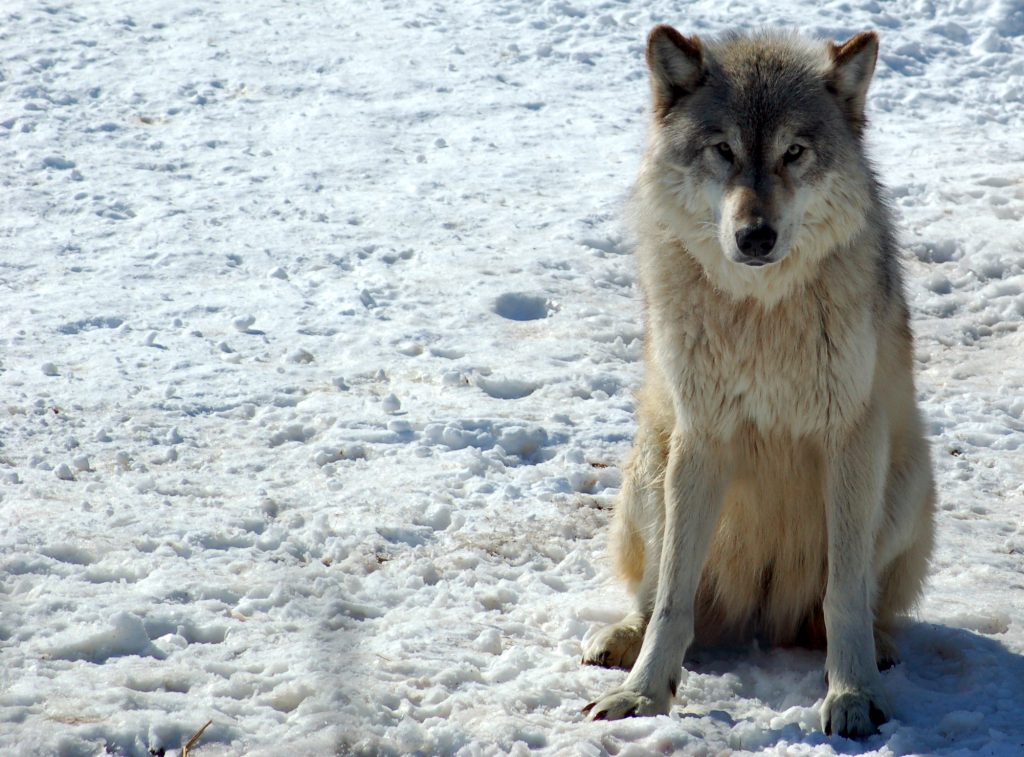Tribes Ask Federal Judge to Block Wolf Hunt
Tribes want protection for wolves if state court ruling is overturned.
A Wisconsin judge blocked the state’s fall wolf hunt in a ruling last week, and six Ojibwe tribes want to ensure it doesn’t move forward in a hearing set for Friday.
Six tribes filed a lawsuit in federal court last month seeking to stop the wolf hunting and trapping season, arguing the hunt violates their treaty rights.
An attorney representing the tribes said they would like to see a federal judge issue a preliminary injunction to prevent the state from holding a hunt in the event Frost’s ruling is overturned on appeal.
“It’s our clients’ position that it’s not time for a wolf hunt, that the species has just been removed from the Endangered Species Act, (and) that the state’s hunt has been badly mismanaged in a way that’s impacted their treaty rights,” said Gussie Lord, attorney for Earthjustice. “And, it’s the tribes’ position that the wolf needs to have time to reestablish itself on the landscape.”
The Trump administration removed the gray wolf from the endangered species list across most of the country earlier this year, saying the animal has recovered. The U.S. Fish and Wildlife Service estimates there are more than 6,000 wolves nationwide, many of which reside in the Great Lakes region. The DNR estimates Wisconsin alone had as many as 5,000 wolves before they were hunted to the brink of extinction.
The DNR originally planned to hold a single hunt this fall, but that was before Kansas-based Hunter Nation sued to force a season. A Jefferson County judge ordered the DNR to immediately hold a hunt in February.
The six tribes argue the state has failed to put adequate safeguards in place to protect their share of the wolf harvest quota. The tribes are alleging the Natural Resources Board knowingly discriminated against them when it set a quota of 300 wolves in August, seeking to cancel out tribes’ share.
The DNR rejected the board’s quota earlier this month and set a harvest target of 130 wolves for the fall hunt prior to the judge’s ruling last week, which ordered the agency to set a quota of zero wolves.
“The February wolf hunt was a harm to our clients, and that harm threatens to continue unabated if the state is allowed to go forward with another hunt,” said Lord.
If a federal judge determines an injunction is unnecessary, Lord said they want the court to take the tribes’ concerns under advisement and issue an injunction if the Dane County ruling is overturned.
Luke Hilgemann, president and CEO of Hunter Nation, has called on the Evers administration to immediately appeal the Dane County judge’s order so that the hunt can move forward.
A spokesperson with the Wisconsin Department of Justice declined to comment Thursday on the status of any appeal to Frost’s ruling.
Hunters, farmers, tribes and wolf advocates have been at odds over wolf management in the state. Hunters say it’s their right to control a population that has grown from just 25 animals in 1980 to more than 1,100 wolves prior to the February wolf hunt. Farmers and hound owners have pointed to increasing conflicts between wolves, pets and livestock as the population has grown.
Under Frost’s order, the DNR is required to update its wolf management plan prior to any hunt pending any appeal.
Tribes and environmental and wildlife groups want the Biden administration to restore protections for the animal nationwide. The administration has defended the delisting as part of a lawsuit challenging the decision.
Gray wolves have been delisted multiple times in the Great Lakes region since 2007. Hunters killed 528 wolves during the three seasons a hunt was held in Wisconsin prior to a federal judge’s ruling that placed the animal back on the endangered species list in 2014.
Wisconsin tribes seek federal injunction to block fall wolf hunt even as recent order bars a season was originally published by Wisconsin Public Radio.





















